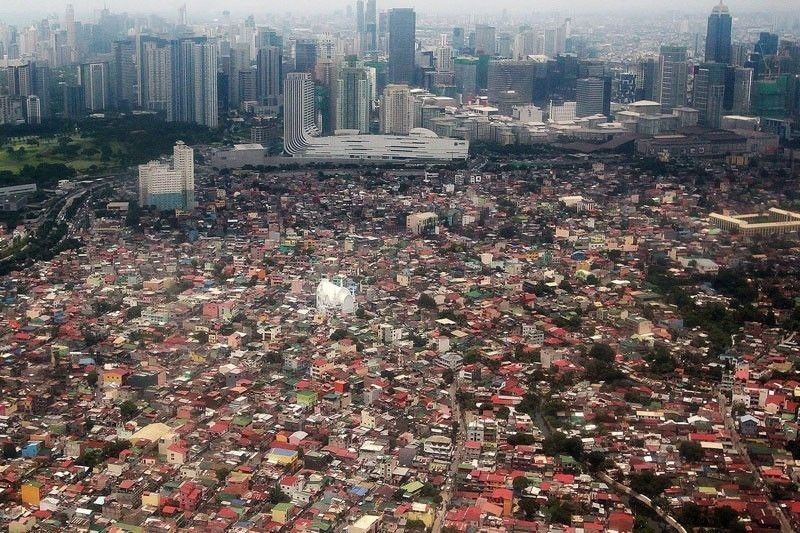Philippines ranks 23rd among 63 states in climate index

MANILA, Philippines — The Philippines ranked 23rd in the Climate Change Performance Index (CCPI) 2022, Malacañang has announced.
“The Philippines is a new entrant to the Climate Change Performance Index and immediately our country ranked 23rd in climate protection performance,” acting presidential spokesman Karlo Nograles said in a recent press briefing.
The CCPI tracks the performance of 63 countries and the European Union on greenhouse gas emissions, renewable energy use and climate policy.
The Philippines is one of three new entrants in this year’s CCPI, published by the Bonn-based non-profit Germanwatch.
In the four main CCPI categories, the Philippines rated low in climate policy, medium in renewable energy, and high in emissions and energy use.
In April, the Philippines submitted its first nationally determined contribution (NDC), which sets a 75-percent emission reduction and avoidance by 2030, as part of its commitment to the Paris Agreement on Climate Change.
The NDC represents the country’s goal of modernizing and pursuing low carbon and resilient development for the agriculture, waste, industry, transport and energy sectors over the 2020-2030 period.
NDCs are pledges submitted by countries to the United Nations Framework Convention on Climate Change as their contributions to achieve the goals of the Paris Agreement, particularly in limiting global warming to well below two degrees Celsius above pre-industrial levels or further to 1.5 degrees Celsius.
However, CCPI experts note the 75-percent emission target is ambitious, “as is the government’s plan to reduce absolute GHG emissions from there forward,” the report said.
“First, there is no clear plan for how to achieve the goal. The current climate policies are in fact not ambitious enough to reach the NDC target. Furthermore, the experts criticize that only 2.71 percent of the NDC target remains unconditional. The rest will be pursued in the case of international finance support,” it said.
“Overall, the main problems concerning climate policy performance in the Philippines are, according to the experts, not just ambition, but apparently the delayed or non-implemented provisions. Additional to the presence of more ambitious climate policies, they demand strong and swift implementation,” the CCPI said.
In a speech at the virtual 13th Asia-Europe Meeting (ASEM) Summit last month, Duterte raised the disruptions brought by the COVID-19 pandemic and the changing climate particularly on vulnerable countries.
Duterte said the main burden of climate action must fall more on the world’s worst polluters, who are responsible for the existential crisis – past and present.
The world’s transition to clean energy cannot be at the expense of the developing world’s progress, the President pointed out.
Duterte called on developed ASEM member-nations to fulfill their commitments in climate financing, technology transfer and capacity-building “without political preconditions.”
“We all need to do our part. The Philippines certainly will. But those who benefitted from our planet the most must do more,” he said.
Declaration to strengthen sea governance
The Philippine government, through the Department of Environment and Natural Resources (DENR), together with 10 other Asian countries, has signed a declaration which aims to strengthen [Palatino]the governance of seas in East Asia to ensure coastal resilience to the impacts of climate change.
Philippine delegation head and Environment Secretary Roy Cimatu signed the Preah Sihanouk Ministerial Declaration during the 7th East Asian Seas Ministerial Forum held virtually last Dec. 2.
Aside from the Philippines, signing the declaration were 10 other member-countries of the Partnerships in Environmental Management for the Seas of East Asia (PEMSEA): Cambodia, China, Democratic People’s Republic of Korea, Indonesia, Japan, Lao People’s Democratic Republic, Republic of Korea, Singapore, Timor-Leste and Vietnam.
Through the declaration, the member-countries have endorsed the PEMSEA Roadmap to 2030 to serve as the region’s strategic guide on the management of seas, anchored on the Sustainable Development Strategy for the Seas of East Asia (SDS-SEA) and commitment to “blue economy.”
The DENR said the declaration is also aligned with the member-countries’ green recovery plans and programs and key environmental commitments.
In a speech during the forum, Cimatu reiterated the Philippines’ commitment to the partnership’s roadmap and also welcomed member-countries’ implementation of “blended protection” to address the threats of climate change to the ocean and marine resources.
This protection would include “30 percent coverage of both land and sea to significantly measure the equivalent effects of protection of biodiversity through strong enforcement of other conservation policies such as the total ban of illegal, unreported and unregulated fishing,” he explained.
Cimatu, however, admitted that there is need for stronger collaboration between governments and other stakeholders for “effective area-based conservation measures” particularly in important marine areas. — Elizabeth Marcelo
- Latest
- Trending




























